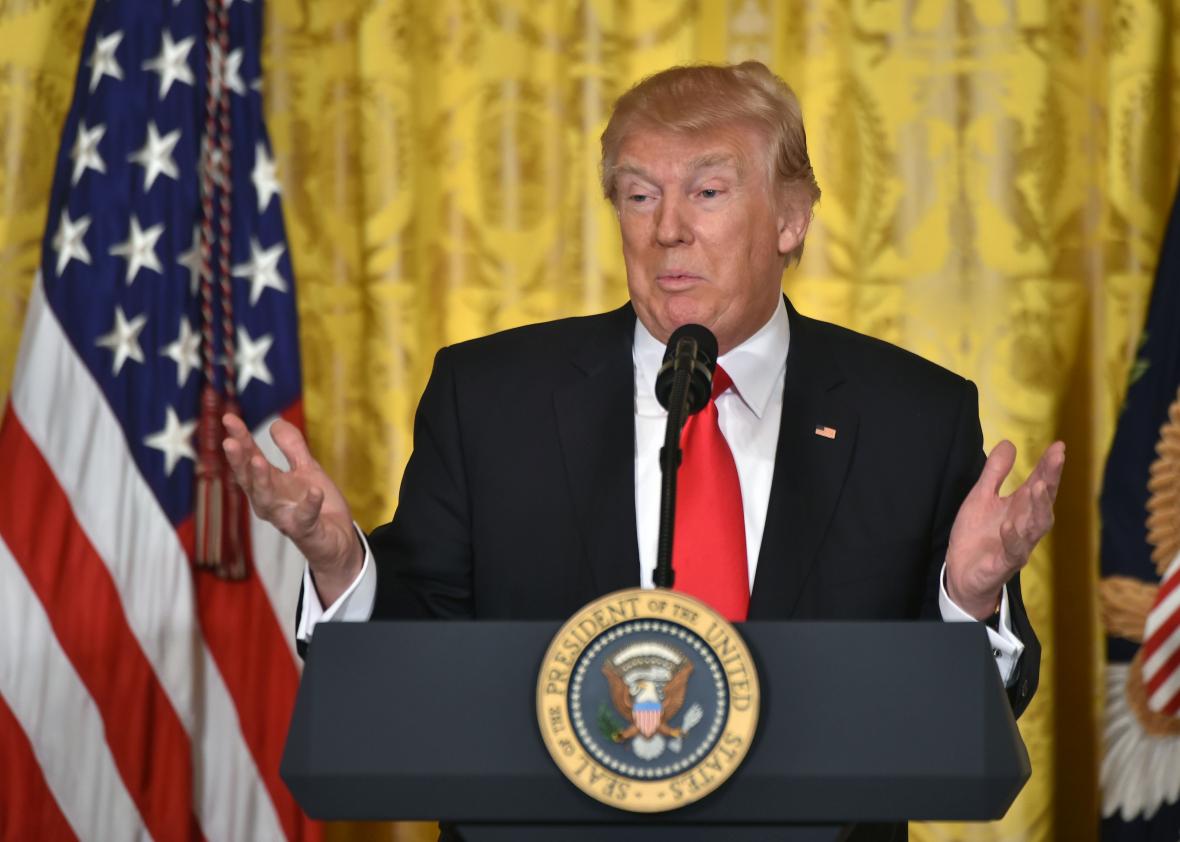 “Trump always gets all the coverage,” an adviser to one of Trump’s opponents tells Politico. “This is what it’s like to run against Trump.”
“Trump always gets all the coverage,” an adviser to one of Trump’s opponents tells Politico. “This is what it’s like to run against Trump.”
Poor babies! If only Trump’s rivals could do something to get attention.
Trump gets more media attention because he’s unpredictable and therefore interesting. “Listen, because you never knew what he would say, there was an attraction to put those [Trump rallies] on the air,” CNN President Jeff Zucker explained in an effort to defend the fact that his network covered more of Trump’s live appearances than Hillary Clinton’s. Ratings drive revenue. Why air Clinton’s cut-and-paste stump speeches—a campaign staple that should have remained in the 19th century—when you know bored viewers will tune away?
Memo to Hillary: you could have played the same game. If you had, you might have won.
Trump’s secret sauce is out there in plain sight. If one of his viewers wants to mount a serious challenge to the former president’s current lead, they ought to try out his formula for attracting free media: ditch the boring scripted speeches, speak extemporaneously, identify voter concerns that politicians have never addressed before, defy party orthodoxy, avoid jargon, make fun of other candidates, use straightforward, simple language.
In a political world of bores and prigs, Donald Trump is entertaining. Hey Republicans! You can do it too!
During his first campaign Trump hammered away at deindustrialization. “George,” he said on ABC’s “This Week,” I’ve gone all over this country over the last three—really, more the eight weeks than ever before. And I’ve gone over and I’ve seen factories that are just empty, beautiful factories, although now they’re not so beautiful, because they’re starting to crumble. But I’ve seen buildings that used to house thousands and thousands of people and they’re just empty. You can buy them for $2. And I stayed in New York…Pennsylvania…Carrier, Ford…I want them to come back.” No American politician had ever spoken to the hollowing out of the Rust Belt before, much less promised to reform trade agreements to protect U.S. manufacturing jobs. It won him the Midwest and the election.
Who would have thought that so many Republicans agreed with him that Bush’s invasion of Iraq was a mistake? He understood something other Republicans didn’t: it was always Pat Buchanan’s party.
Trump takes chances. He’s bold and brash. He doesn’t give a F. Which is why his supporters love him.
Wanna win? Embrace the risky lifestyle, anti-Trump Republicans! You have nothing to lose but the Republican nomination—which you’ll lose otherwise.
N.B.: This advice is not for all of Trump’s rivals. Nikki Haley, the Republicans’ Kamala Harris, sits in low single digits. Like the Clive Owen character in the movie “Inside Man,” however, she’s exactly where she wants to be. She’s running for vice president; she needs to be noticed without exuding the Bernie Sanders-level charisma that intimidates a presidential nominee. Chris Christie is a Fury out to hound Trump just because. Asa Hutchinson wants people to know he’s alive. (It’s not working.) No one, including Mike Pence, knows why Mike Pence is in the race.
“[Trump] has a wide lead because he dominates the conversation,” Miami Mayor Francis Suarez, another challenger, said on Fox News. “And I think the press—and you know I don’t want to fault the press—but that’s all they want to talk about. If we keep talking about the former president, frankly, I’m sure he’s sitting at home in Mar-a-Lago smiling and laughing because they’re giving him the nomination.”
Ron DeSantis, Vivek Ramaswamy, Tim Scott and Doug Burgum are classic attentistes. If and when something happens to Lord Trump, God of the RealClearPolitics National Average, He-Who-Must-Not-Be-Shamed, running 51 to 53% in the polls and rising—if and when he chokes on a taco bowl, goes to prison, is eaten by vengeful orcas, whatever, please, God, they pray nightly, do something—the attentistes will vie for the title of heir apparent to the throne of Maga-stan. Until that time, soon may it come, the Great Orange One reigns supreme and the attentistes defend him against persecuting prosecutorial Democrat infidels, vowing fealty and obeisance as they bide their time.
Waiting around like a toad hoping that Trump will die or go to prison before next summer’s Republican National Convention is not a serious strategy. True, Trump is old and fat and never exercises; he is under indictment on serious criminal charges. Still, odds are he’ll survive and remain free on appeal for at least a year. The fact that DeSantis has raised hundreds of millions of dollars speaks to how easily donors can be persuaded to waste cash on a high-risk investment.
DeSantis et al. face a choice. They can keep on keeping on, waiting to fight for Trump’s spot if and when he drops out, wallowing in wonkdom (c.f., DeSantis’ “medical authoritarianism” and “cultural Marxism”) as the electorate and TV producers fight their collective urge to fall asleep.
Or they can become interesting.
(Ted Rall (Twitter: @tedrall), the political cartoonist, columnist and graphic novelist, co-hosts the left-vs-right DMZ America podcast with fellow cartoonist Scott Stantis. You can support Ted’s hard-hitting political cartoons and columns and see his work first by sponsoring his work on Patreon.)










